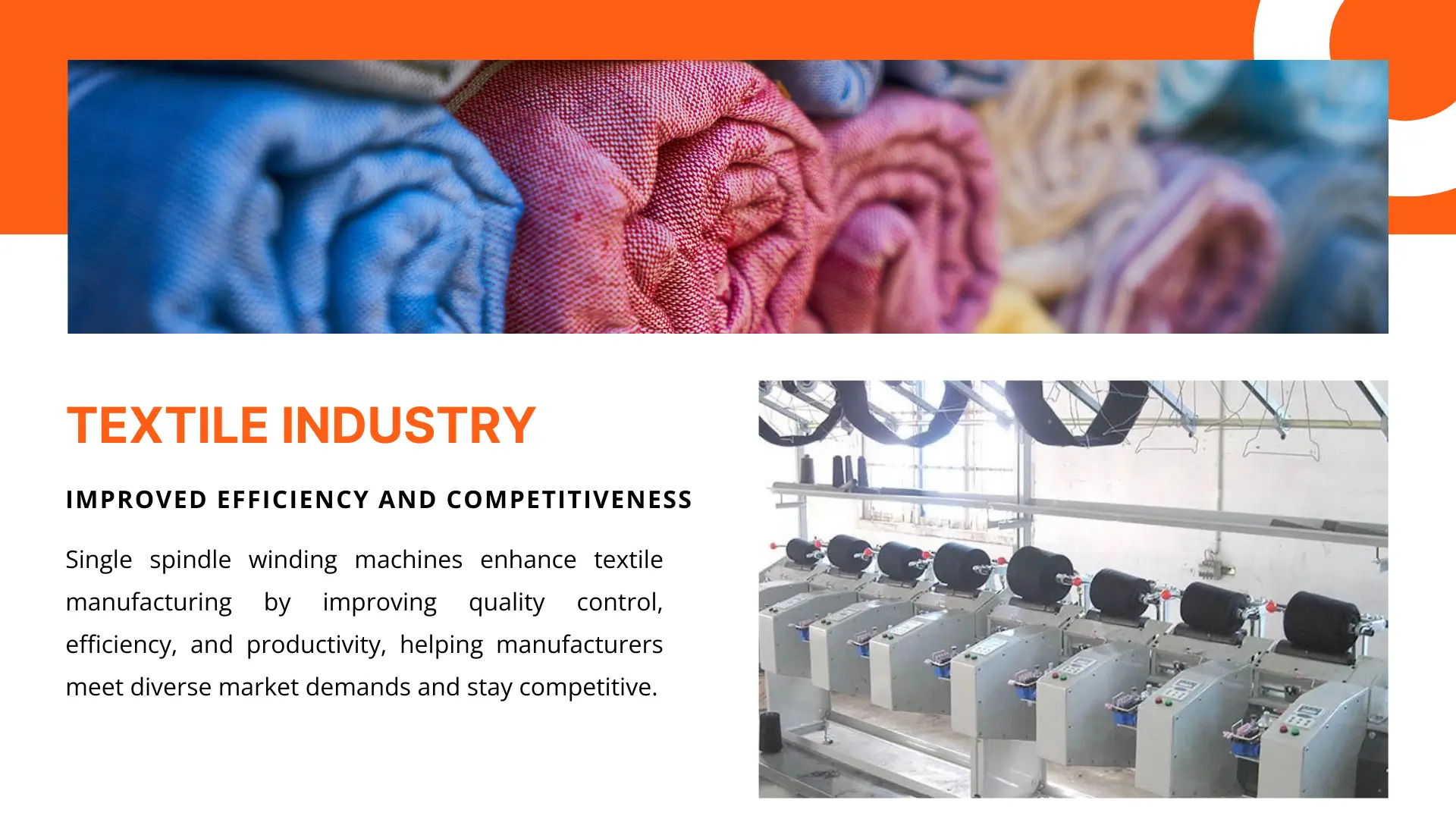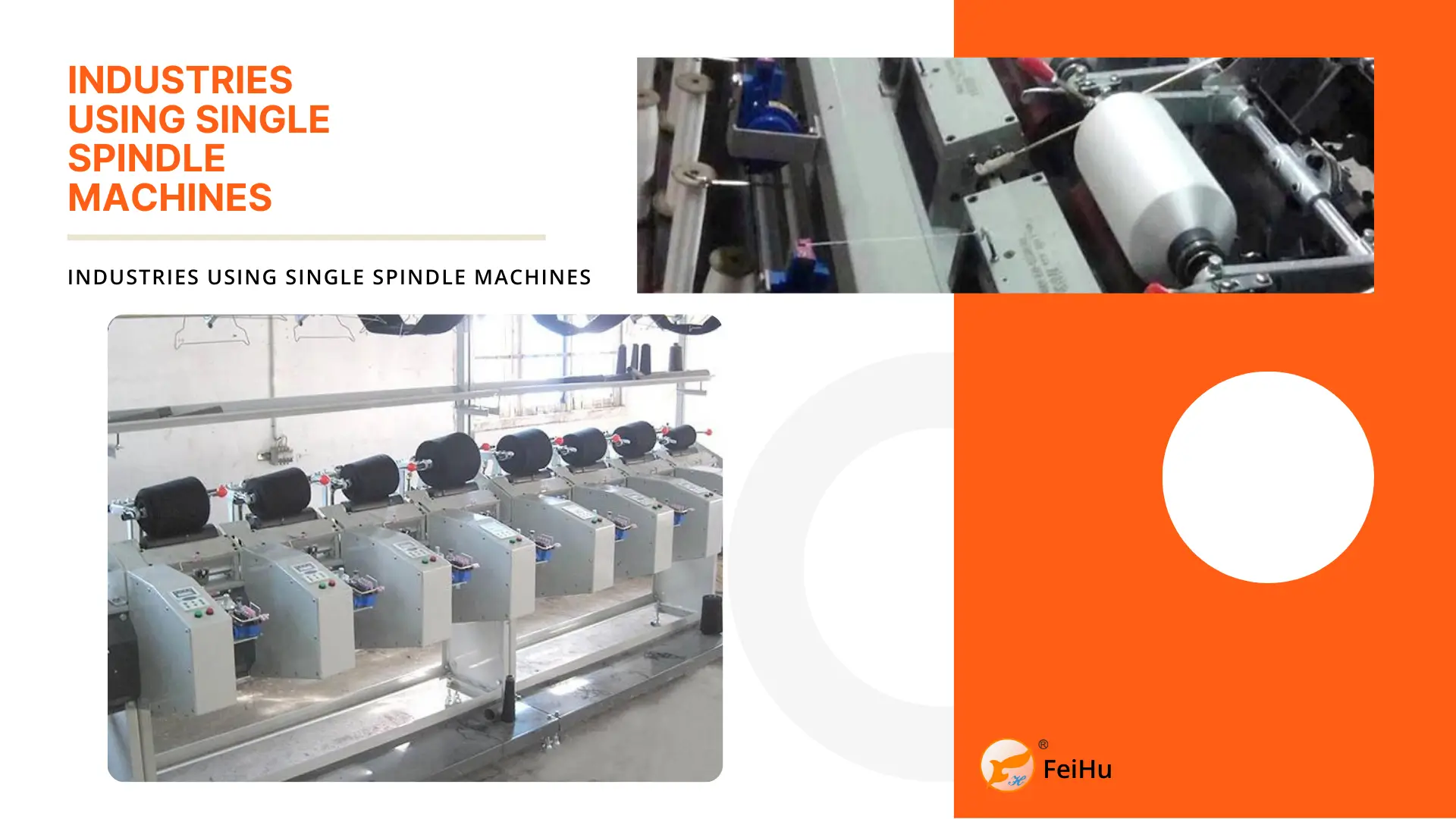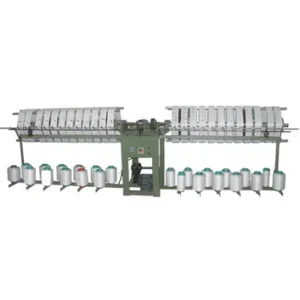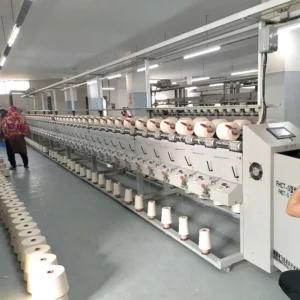The single spindle winding machines are the key to specialized equipment in the manufacture of a huge array of products.
These are gears prepared to wind coils, transformers, and other important electrical components. In this respect, they are indispensable equipment across many industries.
We here explore the main sectors that embrace a single-spindle winding machine and the advantages that these versatile tools bring to the manufacturer.
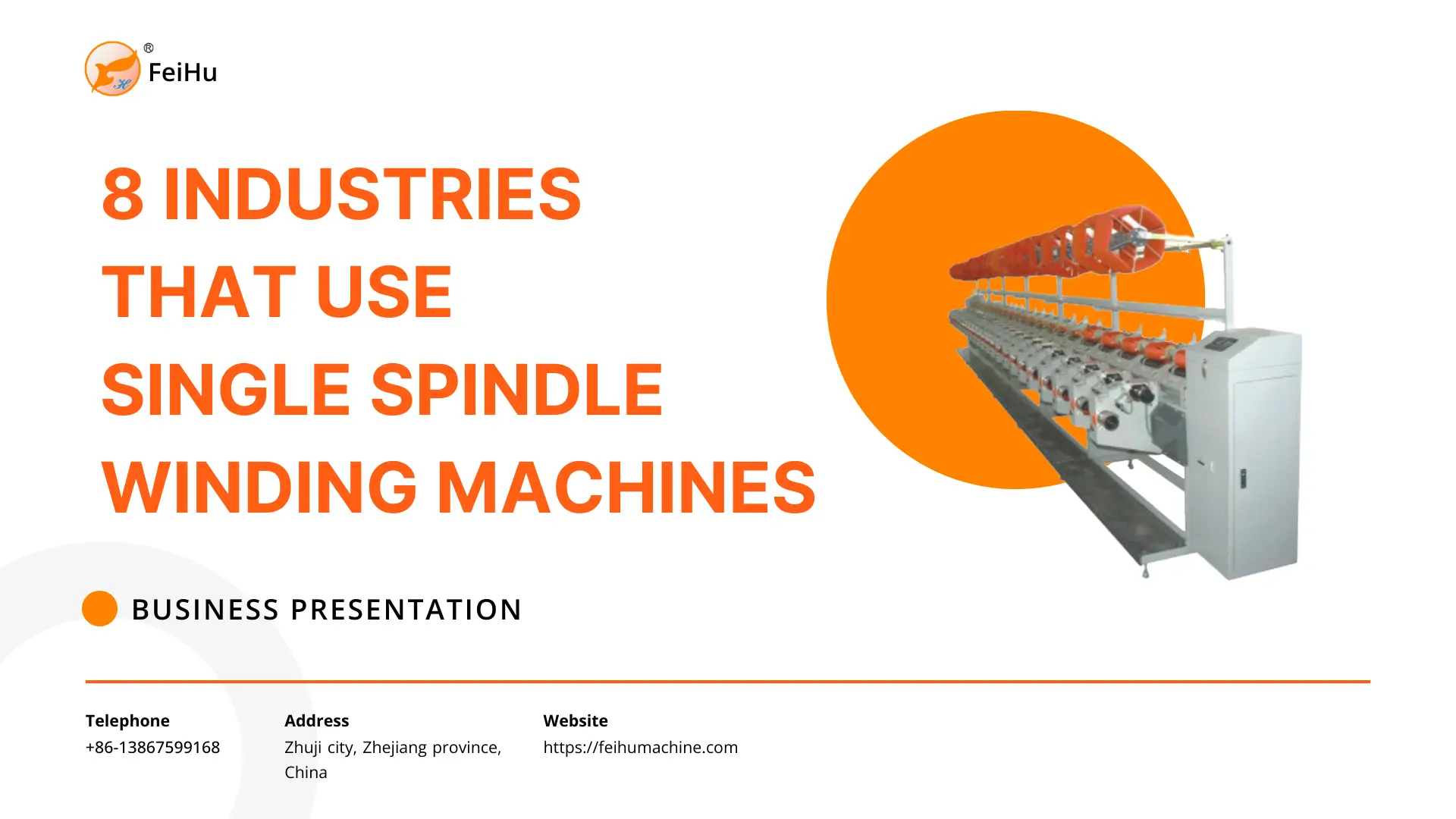
Electrical and Electronics Industry
Transformers and Inductors
Two of the single-spindle winding machines’ largest consumers are the electrical and electronics industries.The dedicated winding machines assume significant importance in the manufacture of transformers and inductors where they can accurately wind both the primary and secondary
windings to specified orders.
However, this is very critical in ensuring maximum efficiency and optimal performance from these critical components of electrical apparatus.
Single spindle winders result in the even winding of the coil to proper dimensions so that manufacturers can produce quality transformers and inductors that meet the tough standards of the industry.
Electric motors and generators
Besides, single spindle winders are widely applied in the fabrication of electric motors and generators.
The single spindle winders are applied in winding the copper coils that constitute the stator and rotors, whereby they allow producers of motors to fabricate consistent quality in large copies.
This contributes directly to the reliability, performance, and energy efficiency demonstrated in the field by the motors and generators running on this winding machine.
Consumer Electronics
Apart from transformers and motors, it is also employed in the production of a wide variety of consumer electronics.The various applications range from the power supplies’ coils and magnetic cores to the specialized windings found in audio machines.
It is in this derogation that the single spindle winders are automated and precision-driven, intent on making every component manufactured serve to increase the performance and reliability in consumer electronics.
Automotive Industry
Electric Motors and Alternators
Yet another industry that utilizes the most single spindle winding machines is the automotive industry.
With the constant churn of electric and hybrid vehicles, an increase of high-performance requirements in the form of electric motors and alternators has taken off.
These factors make the one-spindle winding machines essential for manufacturing this class of automotive components because the inherent features very accurately and efficiently wind the coils to power them.
Such exactness ensures that manufactured motors and alternators perfectly respond to rigorous performance and reliability conditions imposed on them by the automotive industry.
Wiring Harnesses
In addition to motors and alternators, single spindle winders are used in making automotive wiring harnesses whereby the coils and forms of wire that are important elements of complex electrical systems have to be wound accurately to help in attaining quality, consistency, and reliability.
This can be done mostly to a high level of detail that ensures that it results in better performance of the vehicle, besides improving its safety since electrical wiring harnesses are considered an inseparable application of any modern automobile.
Improved Efficiency and Quality
The application of single spindle winding equipment in the automotive industry has enabled manufacturers to streamline their production operations and reduce costs for improved efficiency and at the same time ensuring the highest levels of quality control.
This trickles down to the final product, that is; better performing cars, more reliable, and safer to operate—some of the crucial features to most consumers in the high stakes and super competitive automotive industry.
Read More:
- Single Spindle Winding Machine Applications
- Top 10 Single Spindle Winding Machine Manufacturers in China
Textile Industry
Winding of Yarn and Threads
The textile industry is yet another that greatly benefits from the capabilities of single spindle winding machines.
Winding manufactured textiles with yarn and thread having the same tension and quality over the whole production process ensures conformance to the high standard set by manufacturers and consumers of the textiles themselves.
The use of single spindle winders allows textile manufacturers to prepare raw materials in optimal specifications for forming high-quality fabrics and textiles.
Developments in Winding Technology
Further, the technological progress made in single spindle winding helped the textile manufacturers revolutionize their manufacturing process even more.
The efficiency and improvement in performance through increased speed, better precision, and automation enabled control of the quality, reduction in defects while increasing productivity of textile manufacturers.
Technological improvements will become more critical to textile producers in a market that is dynamic and fast moving, with the ability to consistently deliver a quality product at scale emerging as a major differentiator.
Improved Efficiency and Competitiveness
The introduction of single spindle winding machines has brought many benefits back to the manufacturer in terms of textile manufacturing.
It has managed the winding process, thereby offering superior quality control; hence, efficiency, productivity, and competitiveness are improved for textile manufacturers.
This will enable them to continue satisfying the diversified demand for the textile market and stay ahead in this business.
Product Reccomend:
FH230-D electric overfeed hank to cone winding machine
Specialty Applications
Medical Devices
Although the motor, transformer, and electronics sectors are the prime users, single spindle winding machines find their applications in much more specialized industries.
In the manufacturing of medical equipment products, such as coils used inside catheters for medical visualization, coils and wire forms are required to be wound with precision to meet functional and safety requirements.
The latter thus comes in the wake of the realization that dependable and consistent production remains a core component necessary for medical device manufacturers to meet the stringent regulatory requirements and guarantee reliable performance of their products.
Aerospace Components
Single spindle winding machines are also used to create aerospace components other than the usual medical devices.
Another product manufactured by the aerospace industry is their electrical and electronic systems, which requires sophisticated and very reliable equipment. The systems involved require the winding of very sophisticated coils and wire forms that can be manufactured by single spindle winding technology.
Use of SSPW in this critical industry allows companies to manufacture components to the extreme accuracy and quality level required by the tense operating environment found in flying and space applications.
Other Specialty Products
Besides the medical and aerospace fields, single spindle winding machines find vast applications in the manufacturing of many other special and specific products.
This may involve specialized industrial equipment, scientific instrumentation, or other high-performance areas where the proper winding of coils and wire forms is a crucial need in manufacturing.
Single spindle winders are a versatile, inestimable tool for manufacturers within these niche industries due to versatility and precision.
Conclusion
Single spindle winding machines are one of the most needful ingredients in different industries, such as electrical, electronics, automotive, and textiles.
Being able to accomplish winding with a high degree of precision, it is no exaggeration that these are the machines next to being treasured by manufacturers toward better efficiency, quality, and competitiveness overall.
The importance of single spindle winding machines will grow, as industries go on evolving with the upward spiral in demand for high-performance and reliable products.
Manufacturers who invest in such specialized machines are bound to meet the challenges of tomorrow better and be ahead of the curve in their respective markets.

